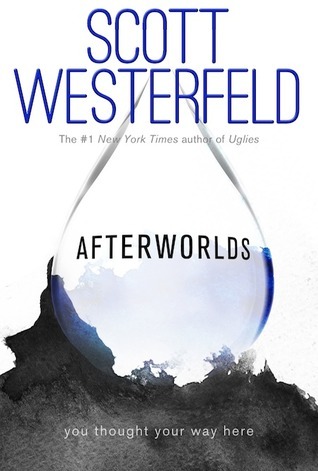Afterworlds is very different from Scott Westerfeld’s usual work as its main theme examines the act of story-telling. This novel is a bit like looking at a mirror within a mirror. Afterworlds is about Darcy, a young debut writer, and her efforts in rewriting her novel called Afterworlds. Darcy’s novel is about a girl called Lizzie, who, after a traumatic event, can see ghosts. The narrative bounces from one story to the other, the events and experiences in Darcy’s life shaping and influencing Lizzie’s world. There were a few things that jumped out at me that I loved immediately. Not only is Darcy’s heritage different for the traditional white, Western YA protagonist, she actively questions the use of her culture for “YA hotness”. I also enjoyed the relationship between Darcy and Imogene. While there is an increasing amount of LGBT individuals being represented in YA literature (such as David Levithan’s Every Day and Patrick Ness’s More Than This), Darcy and Imogene’s relationship focuses on their interactions with each other, rather than the interactions between them and the rest of the world (supportive or otherwise.) They fall in love, have fights, miscommunicate and make mistakes, but their sexuality doesn’t play a central role in this. It just is. There is a real need for creating novels that feature characters that are as diverse as their readers, characters that represent different ethnicities and sexualities, and YA lit offers a space for readers to engage in this discourse.
As a wannabe author myself, I found myself connecting with Darcy and sympathising with her insecurities and anxieties in regards to the act of writing and rewriting, having people you think highly of reading your work for the first time, and struggling with the ethics of what you write about.
And who hasn’t been struck by imposter syndrome?
It was like a little window into the world of publishing and, despite Darcy being quite young, her inexperience and naivety resonated with me. I would highly recommend this novel for any teenager (or ex-teenager) who have their own aspirations for becoming a published author.

